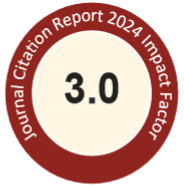Abstract
The anti-allergic effect of epigallocatechin-3-O-(3-O-methyl) gallate (EGCG3″Me) and epigallocatechin-3-O-(4-O-methyl) gallate (EGCG4″Me) isolated from Japanese or Taiwanese tea (Camellia sinensis L.) leaves. These catechins strongly inhibited mast cell activation and histamine release after FcepsilonRI cross-linking through the suppression of tyrosine phosphorylation (Lyn) of cellular protein kinase, and the suppression of myosin light chain phosphorylation and high-affinity IgE receptor expression via the binding to 67kDa laminin receptor. A double blind clinical study on subjects with Japanese cedar pollinosis was carried out. At the eleventh weeks after starting to intake, the most severe cedar pollen scattering period, symptoms i.e. blowing nose, itch of eyes were significantly relieved in Benifuuki group compared with placebo group. Over one consecutive month intake of Benifuuki green containing O-methylated catechin tea was useful for reduction of some symptoms derived from Japanese cedar pollinosis, and did not affect any normal immune response in the subjects with Japanese cedar-pollinosis. From the investigation that the effects of cultivars, tea seasons of crops and manufacturing methods, green or semi-fermented teas, made from fully-matured Benifuuki in second crop season, should be consumed. It is possible to develop functional articles such as beverage or food with this Benifuuki green tea.
Recommended Citation
Maeda-Yamamoto, M. and Tachibana, H.
(2012)
"Anti-allergic action of O-methylated EGCG in green tea cultivar Benifuuki,"
Journal of Food and Drug Analysis: Vol. 20
:
Iss.
1
, Article 50.
Available at: https://doi.org/10.38212/2224-6614.2116

